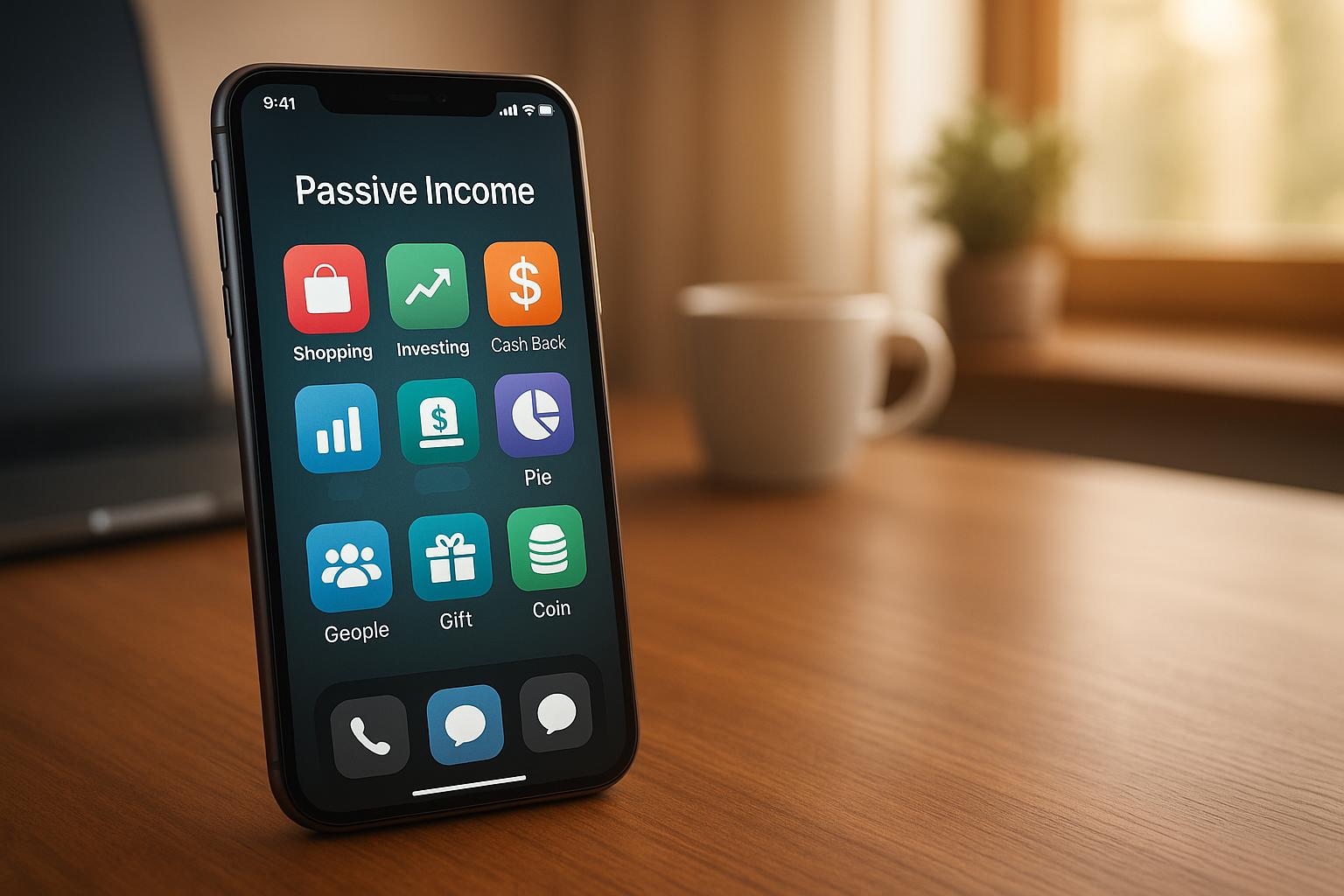- Demand is booming: Multilingual professionals are in high demand as businesses expand globally. Bilingual remote job openings have risen by 30% since 2020, and employers are prioritizing language skills.
- Higher pay: Bilingual workers in the U.S. earn 5–20% more on average. Spanish, French, and Mandarin are especially sought after.
- Key platforms: Top job platforms include TTEC, Teleperformance, Telus International, Ribbon, XOR, Jobma, and e-SideHustles. These platforms offer flexible remote jobs, training, and competitive pay.
- What employers want: Companies seek professionals skilled in language, cultural awareness, and digital tools. Highlight your language proficiency, professional experience, and ability to adapt to remote work environments.
- Why it matters: 68% of customers expect support in their native language, and brands offering this see better retention and sales.
Quick tip: Start by exploring platforms like TTEC or Teleperformance for global opportunities, or visit e-SideHustles for a curated list of multilingual job resources.
Unlock your potential as a bilingual customer service representative
What to Look for in Multilingual Customer Support Platforms
Choosing the right platform for multilingual customer support requires a thoughtful look at several key features. With 68% of customers expecting support in their native language, the best platforms are designed to meet this demand. Here’s what to keep an eye on.
Language Options and Communication Channels
A solid platform should offer a variety of communication channels, including live chat, social media, email, and self-service portals. Additionally, it’s crucial that these platforms integrate translation tools and multilingual knowledge bases. For instance, in 2021, Halfbrick adopted Helpshift’s multilingual chatbot, enabling support in over 12 languages and cutting their time to first response by more than 40%. Similarly, INAI, a Mexican government institution, saw a 45% boost in customer satisfaction after implementing bilingual support in English and Spanish.
The most effective platforms also focus on supporting high-demand languages based on actual user data. Beyond just language capabilities, platforms should accommodate flexible work models to meet the evolving needs of today’s workforce.
Remote Work Options and Job Types
The shift to remote work has reshaped the customer support industry. Before the pandemic, only 5% of call center agents worked remotely. That number skyrocketed to 74% during COVID-19 and has since stabilized at 42% fully remote. The best platforms now offer a range of job types - full-time, part-time, and freelance - to match this new reality, with three times more remote call center opportunities available than in 2020.
Flexibility is a key selling point, with 71% of remote workers stating that remote call center jobs allow them greater work-life balance. This flexibility has also expanded the talent pool, giving companies access to 28% more candidates. To support remote teams, platforms should provide reliable communication tools, online training programs, and clear collaboration guidelines.
Training Programs and Clear Pay Information
Strong training programs and transparent pay structures are just as important as language and remote work features. Leading platforms invest in onboarding that covers technical skills and cultural sensitivity, ensuring agents are equipped to provide effective multilingual support. Transparency in pay is another critical factor - reputable platforms clearly outline hourly rates, performance incentives, and career growth opportunities.
The value of skilled multilingual agents is undeniable, with companies offering multilingual support experiencing 20% higher customer retention rates. Top platforms also prioritize ongoing professional development, offering resources like additional language training, customer service certifications, and well-defined career paths. Regular feedback and clear performance metrics further enhance agent success, reinforcing the importance of quality support. After all, 75% of customers are more likely to return to a brand if post-sale support is provided in their native language.
Best Platforms for Multilingual Customer Support Jobs
Finding the right platform can make all the difference when it comes to securing quality multilingual support roles. The platforms below stand out for their broad language offerings, reliable remote work opportunities, and ability to connect global talent with top companies.
TTEC
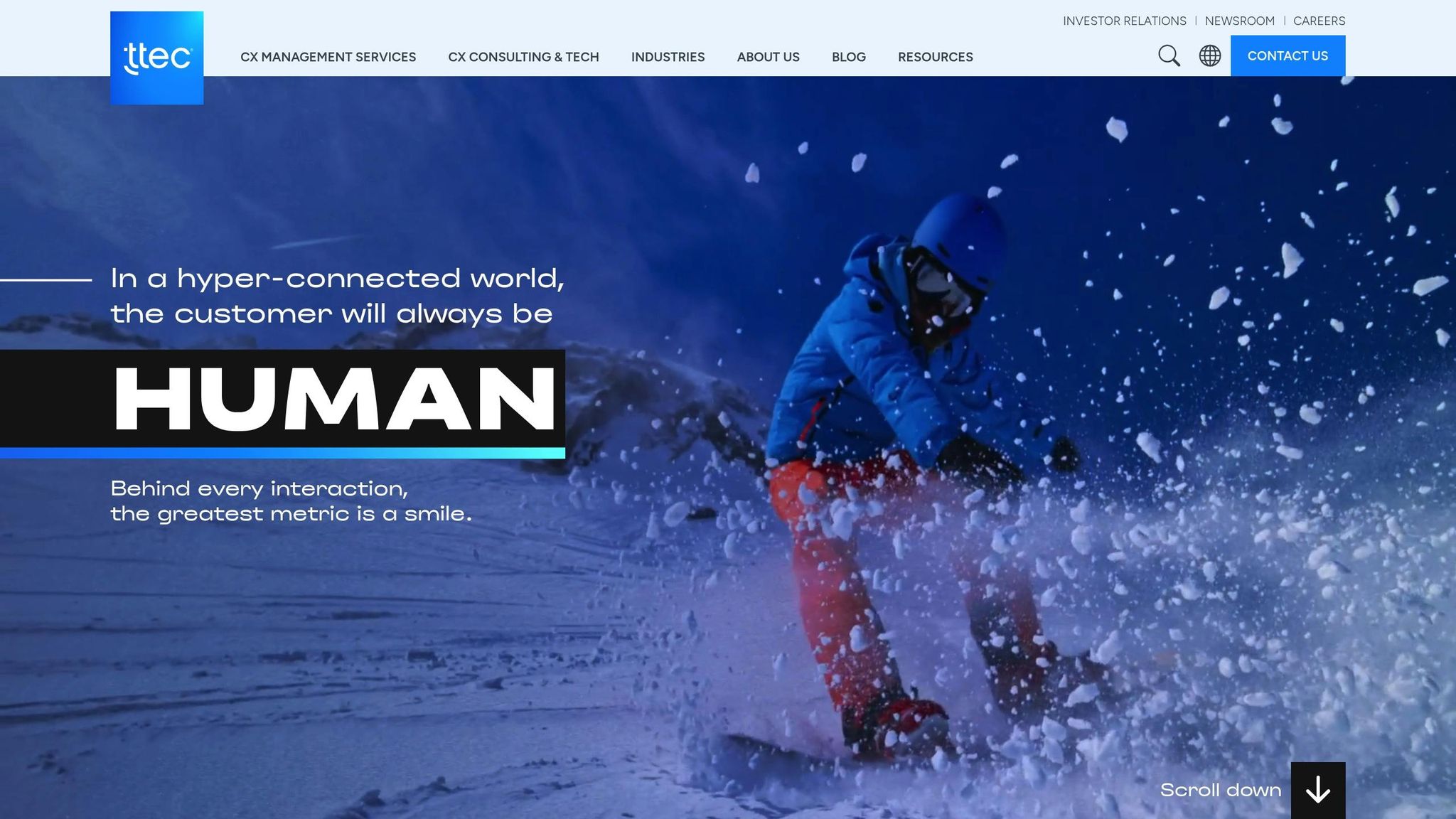
TTEC is a global leader in customer experience solutions, offering roles in over 50 languages. It provides bilingual and multilingual professionals with flexible remote work options, making it an attractive choice for those seeking work-from-home opportunities.
Teleperformance

Teleperformance ranks among the largest customer experience companies worldwide, supporting over 200 languages and operating across multiple continents. This makes it an excellent choice for speakers of less commonly spoken languages.
The company has heavily invested in employee training programs like JUMP! and Foundations, which focus on skill development and preparing employees for new roles. During the COVID-19 pandemic, they adapted to virtual training and certified trainers to meet evolving needs. The JUMP! program promotes internal growth by equipping employees with essential skills, while the Foundations program supports newly promoted staff.
Teleperformance also provides paid training, biannual salary increases, and competitive benefits. For example, in December 2024, they offered roles for fluent English speakers with salaries of $15,000, plus benefits like medical and social insurance, transportation coverage, and rotational shifts with two days off. They further recognize exceptional employees through their Global Training Inspire Awards Ceremony.
Telus International
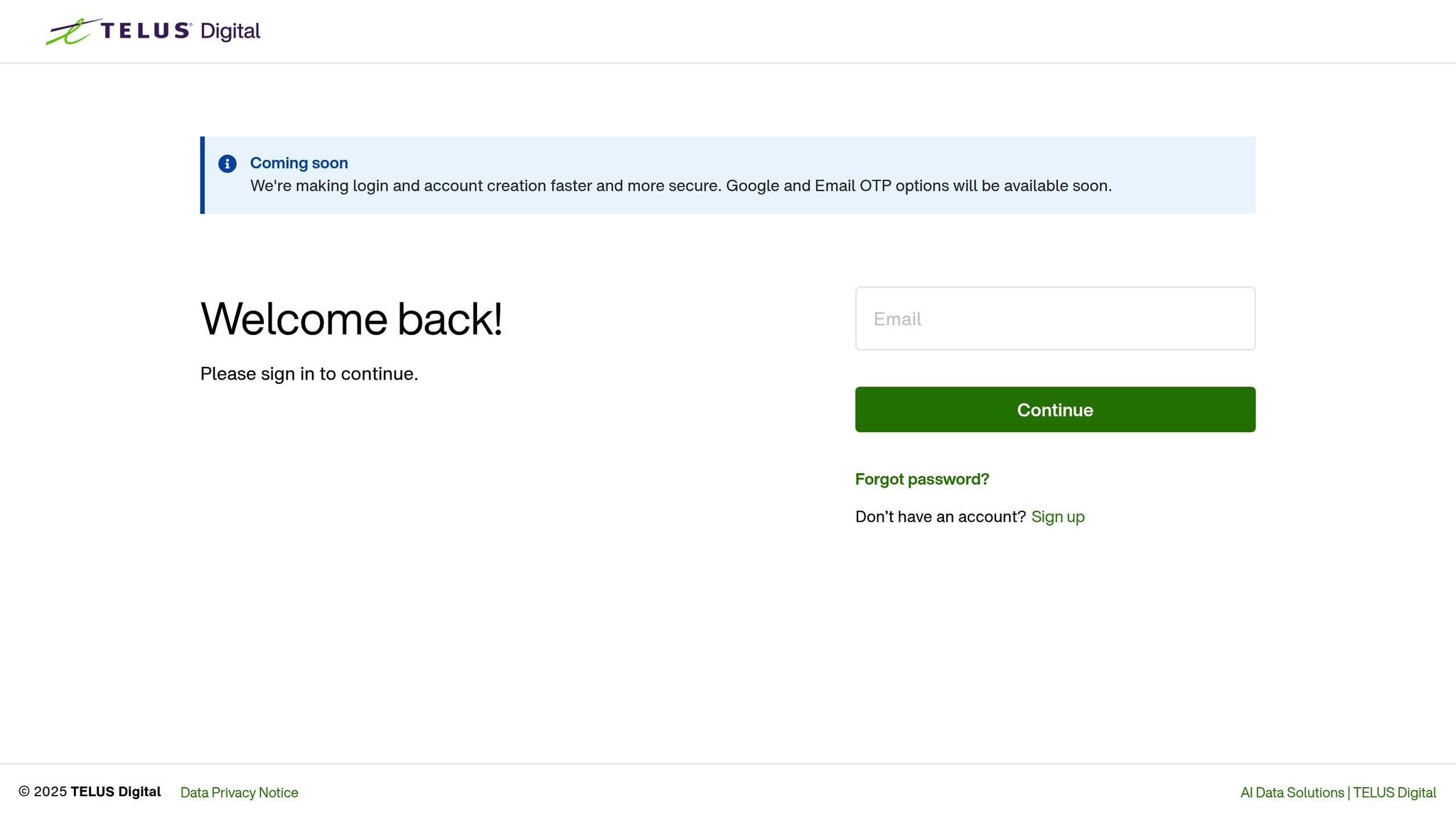
Telus International blends traditional customer support with advanced technology solutions. They offer multilingual roles that incorporate AI tools and IT support services, covering over 50 languages. The company emphasizes digital transformation and AI integration to enhance customer experiences. Remote employees benefit from competitive pay and access to modern collaboration tools, making it a strong option for tech-savvy professionals.
Ribbon and XOR
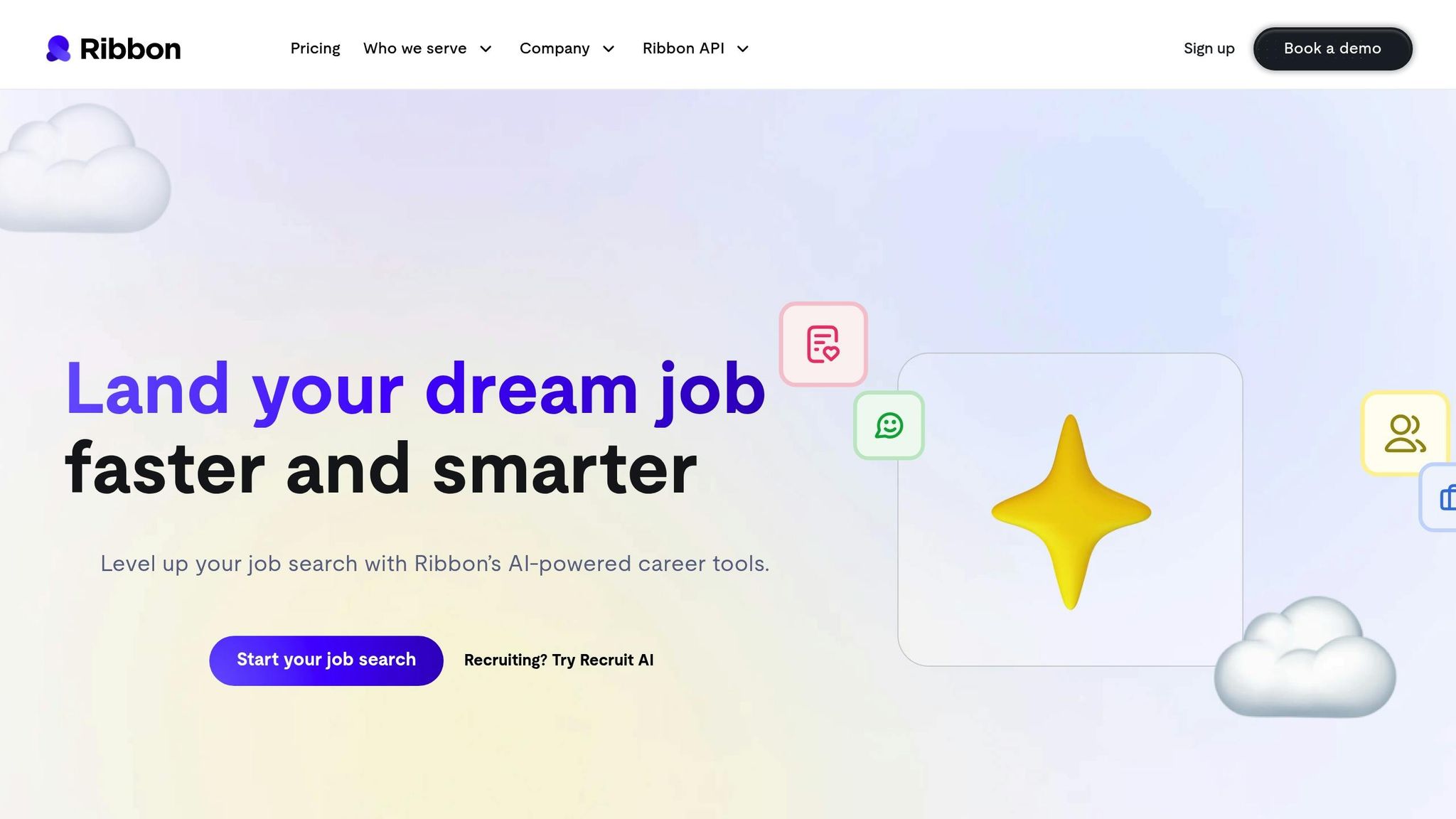
Ribbon and XOR simplify the job application process for multilingual roles. These platforms use AI-powered tools to streamline resume screening and interview scheduling, helping candidates connect quickly with opportunities. Employers also benefit from these tools, as they make it easier to identify qualified multilingual talent.
Jobma

Jobma specializes in AI-powered video interview tools designed for companies seeking multilingual customer support representatives. The platform addresses challenges like coordinating interviews across languages and time zones. By allowing candidates to demonstrate their language skills directly, Jobma helps employers assess communication abilities more effectively.
e-SideHustles
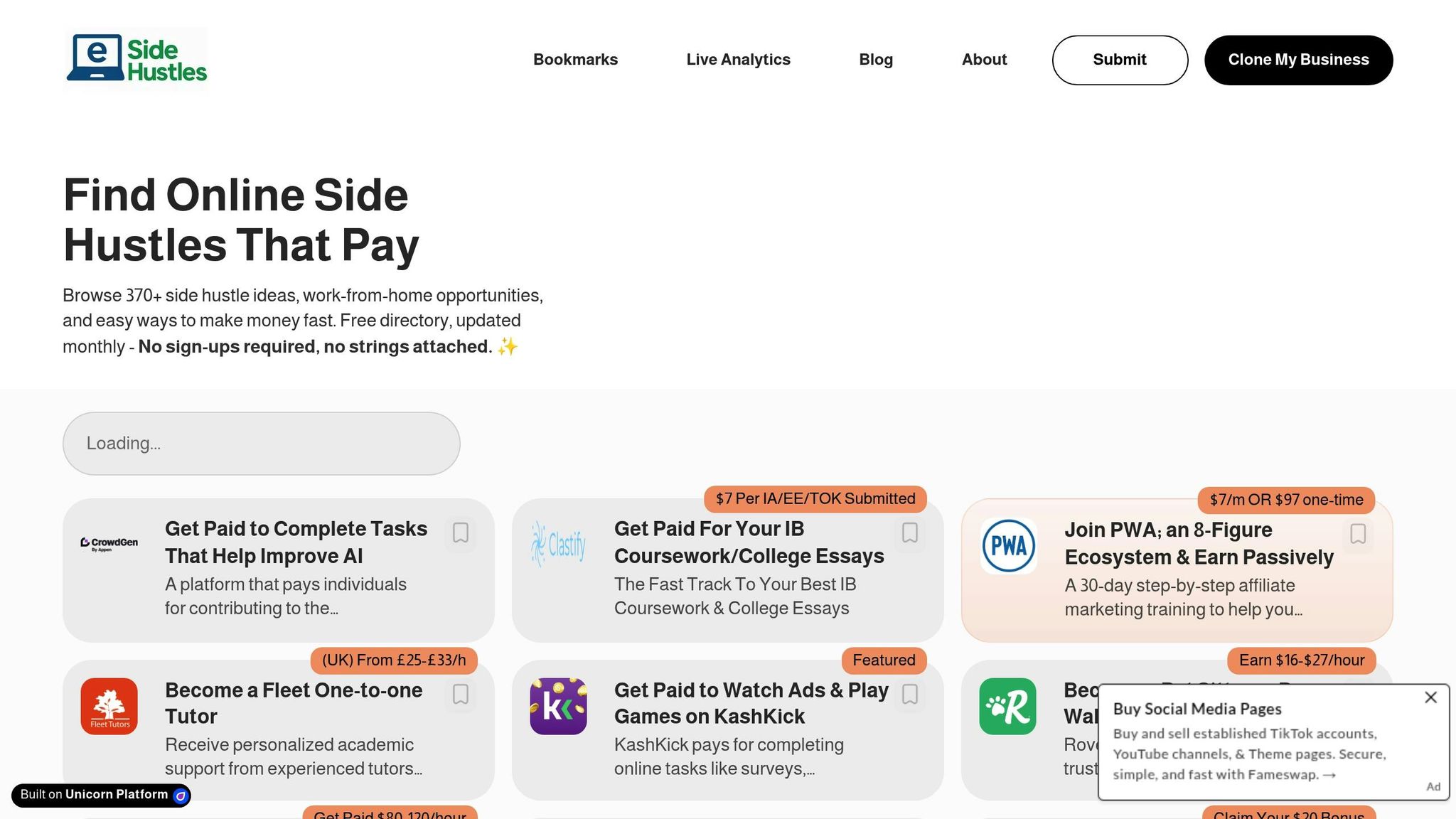
e-SideHustles is a comprehensive directory featuring over 370 curated resources for online work opportunities, including multilingual customer support roles. This platform organizes listings across various categories, making it easy to find customer support jobs alongside freelance, tutoring, or e-commerce opportunities.
Access to the directory is free, ensuring job seekers face no financial barriers. In addition to job listings, e-SideHustles offers guides and tutorials for income generation, helping users build valuable skills. The platform also fosters networking through its community, connecting remote workers and entrepreneurs for professional growth.
"Multilingual customer support isn't just about speaking different languages – it's about connecting with customers on their terms. In today's global marketplace, it's becoming less of a luxury and more of a necessity." - Faz, Demand Gen - Inbound Marketer, HappyFox
Each of these platforms caters to different needs within the multilingual customer support job market. Whether you're searching for direct employment, a smoother application process, or resources to develop your career, the key is finding the platform that aligns with your skills, goals, and preferred work setup.
sbb-itb-fd652cc
How to Get Hired for Multilingual Customer Support Jobs
Getting a job in multilingual customer support takes more than being able to speak multiple languages. Employers want someone who can handle professional conversations, understand cultural nuances, and adapt to different communication channels. Here’s how to stand out as the perfect candidate.
Proving Your Language Skills
Showcase your language skills prominently on your resume. Dedicate a section to list each language you know along with your proficiency level - whether it’s native, fluent, advanced, intermediate, or basic. Go a step further by highlighting how you’ve used these skills in previous roles. For example, a legal translator who worked with Arabic and English might note they translated over 50 legal documents per month, including contracts and court decisions, achieving a 96% client satisfaction rate.
Cultural awareness is just as crucial as language proficiency. Career coach Alejandra Mielke explains it well:
"Having access to two systems of communication goes beyond the language; it includes the culture".
Make sure to emphasize your ability to navigate cultural differences effectively in professional settings. Certifications from accredited organizations can also help validate your skills. And here’s a bonus: bilingual employees tend to earn 5% to 20% more on average. With only about 20% of Americans being bilingual, your skills can give you a competitive edge.
Creating a Strong Online Profile
Your resume and LinkedIn profile should be tailored to highlight both the job title and your measurable accomplishments. For example, you might include something like, "Resolved customer issues with a 98% satisfaction rate, reducing response times by 40%." Farah Sharghi, Founder of Trusted Career Mentor, advises:
"Your resume is not a to-do list. It's a results-focused document that shows how your work created business outcomes".
If you’ve worked remotely, be sure to mention your experience with digital collaboration tools, as remote work is often a key component of these roles. Align your profile’s summary with the job requirements to grab a recruiter’s attention. Matt Hearnden, Senior Recruiter at HackerOne, underscores the importance of content:
"I've seen beautiful resumes that weren't ATS optimized go through just fine. Content still trumps everything".
Once your profile is polished, confidently tackle language tests and video interviews to prove your abilities.
Passing Language Tests and Video Interviews
Language assessments are designed to test your reading, writing, speaking, and listening comprehension through real-world scenarios and technical questions. These tests could happen before, during, or even after the interview process.
To prepare, focus on each skill area. Listening tests may include audio clips followed by multiple-choice questions, while reading assessments often require you to answer questions based on a given passage. Writing tests typically involve responding to scenarios to showcase clear, error-free communication.
ALTA Language Services offers examples of speaking test questions, such as:
"Describe your shoes", "Give directions for buying a book from a website", or "Tell me three things you will do the next time you go to a restaurant".
Some tests may include more technical questions, like:
"Describe the symptoms of chickenpox" or "Explain how to give a patient an injection".
If you’re applying for a role in a specialized field, practice using industry-specific vocabulary. Video interviews are also common in multilingual roles. You might be asked to submit a recorded response or participate in a live interview conducted in multiple languages. To prepare, ask recruiters about the format of any language assessments so you know what to expect. Using online practice tests, flashcards, and study guides can help you feel more confident and ready to shine.
Conclusion: Finding Success in Multilingual Customer Support
The multilingual customer support industry offers a growing opportunity for professionals with language expertise. With 68% of customers expecting support in their native language and 75% more likely to make repeat purchases when served in this way, companies are actively seeking skilled multilingual representatives. Despite a 30% rise in bilingual remote jobs since 2020, 82% of companies still don’t provide multilingual support due to concerns about return on investment. This gap presents a golden chance for professionals who can bridge this communication divide.
Language skills hold significant value in the market. In fact, nearly 70% of consumers would switch to a brand that offers support or content in their native language. This demand underlines the importance of multilingual capabilities in fostering customer loyalty.
The platforms highlighted in this guide, such as TTEC, Teleperformance, and Jobma, provide a range of benefits, from professional training to flexible work schedules and access to premium clients. These tools are designed to support professionals aiming to excel in this field.
But success in multilingual customer support goes beyond being fluent in multiple languages. It requires cultural sensitivity, proficiency with digital communication tools, and the ability to create personalized customer experiences. The effort pays off - multilingual professionals often earn 5% to 20% more than their monolingual peers, making this skill set a valuable investment.
To make the most of these opportunities, it’s essential to use reliable resources. Platforms like e-SideHustles, which offers over 370 curated tools for remote work opportunities, can be an excellent starting point for exploring customer support roles and other remote career paths.
Long-term success in this industry depends on continuous growth and strategic planning. Focus on mastering key languages, sharpening your soft skills, and becoming proficient with digital tools. As the global market continues to grow, your multilingual abilities will position you as an invaluable asset in building a thriving remote career.
FAQs
What are the advantages of working with platforms like TTEC and Teleperformance for multilingual customer support roles?
Platforms such as TTEC and Teleperformance are great options for professionals in multilingual customer support roles. They focus on hiring associates with near-native language proficiency, which ensures smooth communication and a deeper understanding of customer needs, ultimately leading to improved satisfaction.
These companies also stand out for offering career growth opportunities, thorough training programs, and competitive pay packages that include benefits. On top of that, they value diversity and prioritize employee development, making them appealing choices for anyone looking to advance their career while enjoying the flexibility of remote customer support work.
How can I highlight my language skills and cultural awareness to stand out when applying for multilingual customer support roles?
When applying for roles in multilingual customer support, make sure to emphasize your language skills prominently on your résumé. Clearly list the languages you speak along with your proficiency levels - whether you're fluent, native, or conversational. If you hold certifications like TOEFL or DELE, be sure to include them as proof of your abilities.
Also, draw attention to any experiences that reflect your cultural understanding. This could include working with diverse teams, living in another country, or completing cross-cultural training programs. Provide concrete examples of how your awareness of different cultures helped you solve customer problems or improve communication. These insights demonstrate your ability to connect with customers from a variety of backgrounds effectively.
How can I prepare for language tests and video interviews for multilingual customer support jobs?
To stand out in language tests and video interviews for multilingual customer support roles, it's essential to sharpen your listening, speaking, reading, and writing skills. Here’s how you can prepare:
- Immerse yourself in the language: Watch TV shows or listen to podcasts in the target language to improve comprehension and pronunciation.
- Expand your vocabulary: Read newspapers, online articles, or books regularly.
- Practice speaking: Engage in conversations or join language exchange groups to build fluency and confidence.
When it comes to video interviews, preparation is key:
- Rehearse common interview questions: This will help you articulate answers clearly and confidently.
- Keep it professional yet simple: Use straightforward, polished language to highlight your communication abilities.
- Check your tech setup: Test your audio, video, and lighting to ensure everything looks and sounds professional.
These steps will not only boost your confidence but also help you effectively demonstrate your language skills and professional demeanor.

